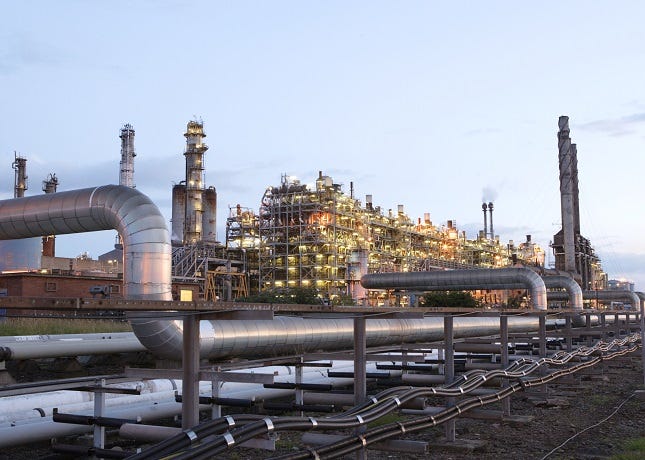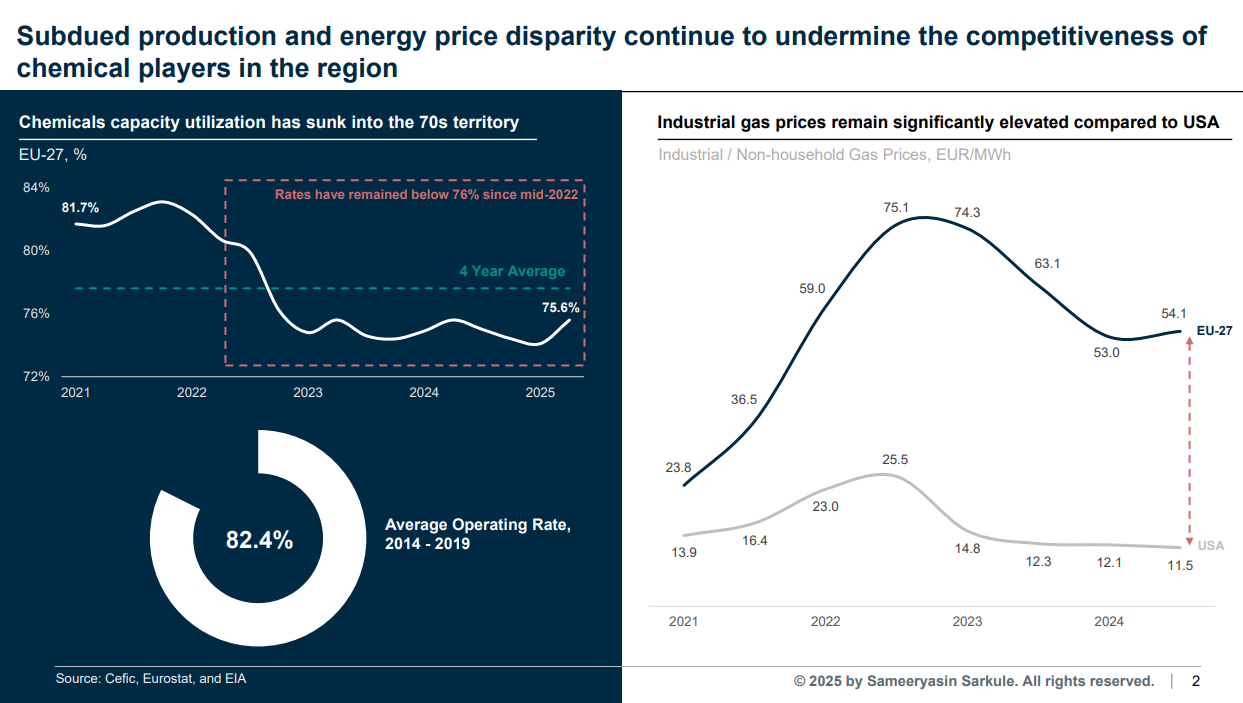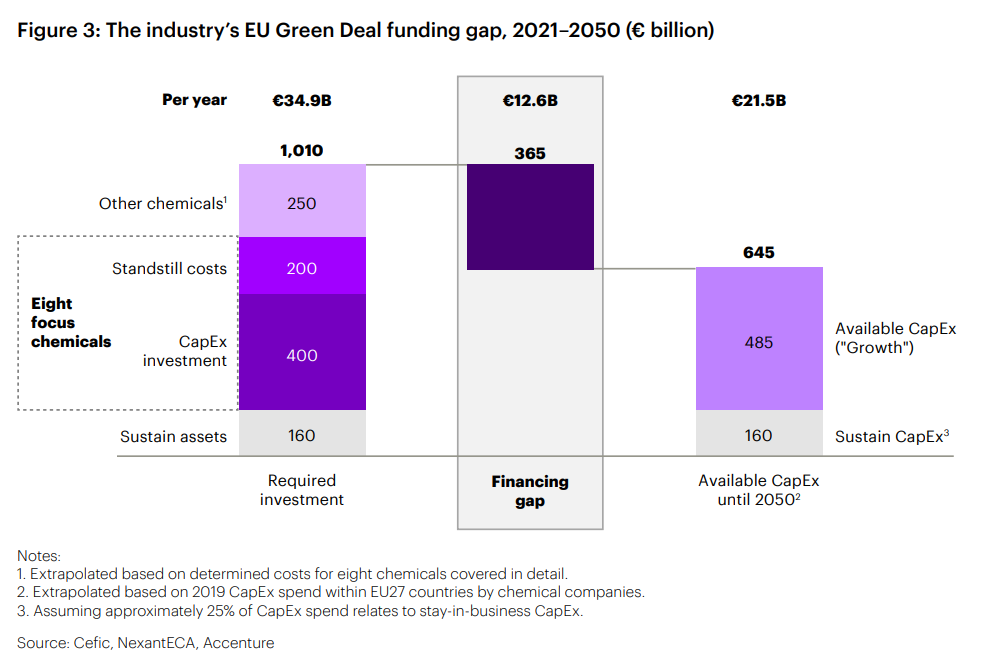Cracking under pressure
Welcome to Carbon Risk — helping investors navigate 'The Currency of Decarbonisation'! 🏭.
If you want to know more about how carbon markets combat climate change, what this burgeoning market means for investors, and the latest trends affecting decarbonisation then please consider upgrading your subscription.
🛫 Note that I’m taking a break from carbon markets for a couple of weeks. I will be back at my desk in late August 🛬
A devastating picture is starting to emerge of Europe’s petrochemical industry as several firms announce that their production facilities are due to close. High input costs, more competitive imports, and lacklustre demand have forced a rationalisation of assets and the closure of several crackers so far, with more on the horizon.
In the past few weeks, Saudi petrochemical giant, SABIC announced that it is shutting down its 865 kt Olefins 6 ethylene cracker at Wilton in northeast England. Meanwhile, Dow Chemical has confirmed that its 560 kt Böhlen ethylene cracker in Germany will shutdown by the end of 2027. In total, almost 4 Mt of ethylene closures have been announced since late 2024, along with 1.7 Mt of propylene capacity (see Hot and bothered).
Primary petrochemical materials such as ethylene and propylene are the building blocks for plastics, pharmaceuticals, and countless other industrial goods, many of which are strategically important. If Europe is unable to manufacture these materials economically then it will increasingly become dependent on imports to satisfy demand. Other European petrochemical plants, including those manufacturing intermediate and finished products, have also been served their last rites, or are under increasing threat of closure.
European crackers tend to be old (many began operating in the 1970’s), typically use more expensive naphtha as a raw material, and are often energy inefficient. It’s a big problem given that industrial gas prices in Europe are around 5-times higher than in America, and European industry is beginning to feel the full impact of EU carbon prices.
Many of Europe’s chemical plants are small and mid-sized facilities, and with utilisation rate having dropped below 80% since early 2022, a level widely considered to be uneconomical, further closures are inevitable. Wood Mackenzie estimates that an additional 20 Mt (~one-third) of the EU’s ethylene capacity is at high or medium risk of closure.
The precarious short-term financial position is making it much more difficult to focus on the longer-term challenges facing the industry, such as investing in the low-carbon economy. The European petrochemical industry faces a €365 billion decarbonisation funding gap between 2021 and 2050, according to Accenture. It means that if producers are going to move towards net zero, they will need to increase their capital expenditure by €12 billion, and maintain this level of investment every year until 2050.1
Retrofitting the EU’s fossil fuel-based steam cracker furnaces with electric furnaces is one approach to closing this gap. Accenture estimates that it will cost €200 billion (plus €100 billion in foregone profits), and result in additional energy demand of 200 TWh, roughly one-fifth of Europe’s renewable electricity generation. In reality, we’re not even at the stage where the concept is proven, yet alone ready to be rolled out across Europe. For example, it was only last year that BASF, SABIC and Linde inaugurated the world’s first large-scale demonstration plant to use electricity in its cracker furnace. There are no plans to electrify an existing fossil-fuel based cracker in Europe.




